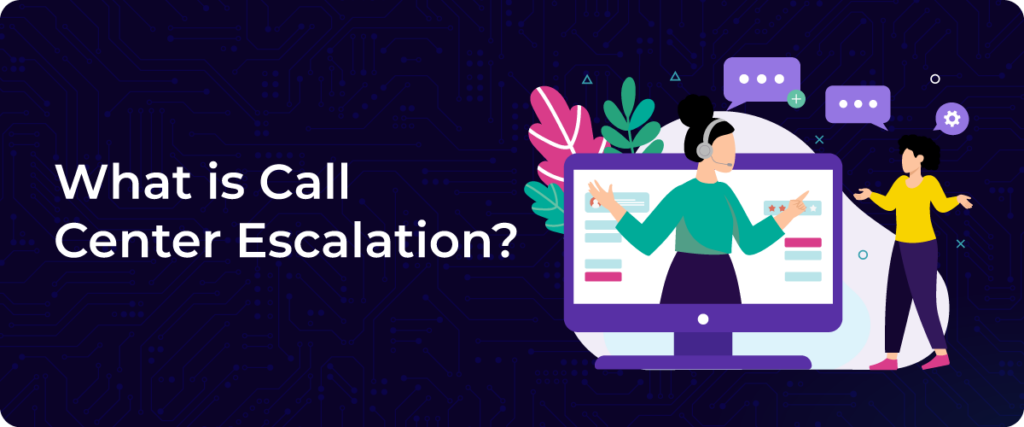A single negative experience can drive 32% of customers away from their favorite brands. This surprising fact highlights how customer loyalty hangs by a thread. Companies with dedicated escalation departments stand a better chance of keeping their valuable customers.
Customer experience needs the most important improvements. Your business’s escalation management plays a vital part in addressing this challenge. Recent research reveals that 73% of consumers expect companies to understand their unique needs.
A well-laid-out customer escalation process helps meet these expectations effectively. Let us explore this blog with the below outline:
1. Understanding Escalation Departments
2. Impact of Customer Escalations
3. How an Escalation Department Drives Business Growth
4. Measuring the ROI of Your Escalation Team
5. Manage Escalations with ConvoZen.AI
6. Conclusion
7. Frequently Asked Questions (FAQs)
Understanding Escalation Departments
What is an Escalation Department?
An escalation department is a dedicated team that manages customer issues beyond the capabilities of frontline agents. It ensures that escalations are handled efficiently to prevent dissatisfaction, enhance customer retention, and protect a company’s reputation.
Key Functions of an Escalation Team
1. Issue Resolution
Handles complex cases that require advanced troubleshooting and decision-making.
2. Customer Advocacy
Represents customers internally, ensuring their concerns receive proper attention.
3. Process Improvement
Identifies recurring customer complaints, enabling businesses to refine their service strategies.
4. Collaboration with Departments
Works closely with technical support, legal, and management teams to ensure accurate and swift resolutions.
5. Timely Follow-Ups
Ensures continuous communication with customers, providing updates and confirming issue resolution.
6. Compliance and Documentation
Maintains detailed records of escalations to ensure regulatory compliance and support future improvements.
By maintaining a structured escalation management process, businesses can significantly enhance customer experience and operational efficiency.
Impact of Customer Escalations
Customer escalations can significantly impact a business, influencing customer satisfaction, brand reputation, and operational efficiency. Understanding their effects is crucial for effective escalation management.
1. Customer Trust and Retention
When escalations are handled efficiently, customers feel valued and heard. A well-managed escalation process prevents frustration and improves customer retention. Conversely, poor handling can lead to dissatisfaction, with 73% of consumers switching brands due to poor customer service.
2. Brand Reputation and Public Perception
Unresolved escalations can lead to negative reviews and social media complaints, damaging a company’s reputation. Businesses that prioritize effective escalations build credibility and demonstrate their commitment to customer service, fostering positive word-of-mouth.
3. Operational Efficiency and Cost Management
Frequent escalations indicate gaps in service quality and inefficiencies in customer support. Addressing these issues helps streamline processes, reducing costs associated with repeated customer complaints and additional support staff.
Click here to learn about what is the future of customer support.
4. Employee Productivity and Morale
A high number of escalations can overwhelm support teams, leading to burnout and decreased morale. Establishing clear escalation processes and providing adequate training ensures agents can manage escalations effectively, improving overall team performance.
How an Escalation Department Drives Business Growth
A well-structured escalation department plays a crucial role in business growth by improving customer experience, enhancing operational efficiency, and safeguarding brand reputation. Here’s how it contributes to long-term success:
1. Improves Customer Retention and Loyalty
Efficient escalation management ensures that customer concerns are handled professionally and quickly. When customers see that their issues are taken seriously, they are more likely to stay loyal. Studies show that 89% of consumers are more likely to make another purchase after a positive customer service experience.
2. Enhances Brand Reputation
A strong escalation process minimizes negative reviews and complaints, which can damage a company’s reputation. By resolving escalations effectively, businesses demonstrate commitment to customer satisfaction, leading to positive word-of-mouth and higher trust in the brand.
3. Reduces Revenue Loss from Churn
Poorly handled escalations drive customers away, directly impacting revenue. A dedicated escalation team helps prevent churn by addressing high-priority issues before they lead to cancellations. This is especially critical in industries like SaaS, telecom, and banking, where retention is key to profitability.
Learn about the best strategies to reduce customer churn rates
4. Identifies Service Gaps and Process Improvements
Frequent escalations highlight underlying problems in products, services, or customer support workflows. By analyzing escalation trends, businesses can identify recurring issues and implement process improvements, reducing future complaints and enhancing overall efficiency.
5. Boosts Employee Productivity and Efficiency
Without a structured escalation department, frontline agents spend excessive time handling complex cases, reducing overall productivity.
A dedicated escalation team allows customer service representatives to focus on routine queries while experienced specialists tackle more challenging issues. This division of responsibilities leads to faster resolutions and a more efficient workforce.
6. Increases Customer Lifetime Value (CLV)
When customers experience effective issue resolution, they are more likely to continue engaging with the brand. A well-managed escalation process not only retains customers but also encourages upselling and cross-selling opportunities.
Happy customers tend to spend more over time, increasing their overall lifetime value to the business.
Measuring the ROI of Your Escalation Team
Key Metrics to Track ROI for your escalation team:
1. Customer Retention Rate
A well-managed escalation process reduces churn. Tracking customer retention before and after implementing an escalation team helps assess its impact on loyalty.
2. Resolution Time and Efficiency
Faster resolutions indicate an effective escalation management strategy. Measuring the average resolution time and comparing it with industry benchmarks reveals performance improvements.
3. Customer Satisfaction (CSAT) and Net Promoter Score (NPS)
Surveys after escalations show how well customers perceive issue resolution. High scores suggest in CSAT and NPS that the team positively impacts customer experience.
4. Revenue Saved from Retention
Retaining customers reduces acquisition costs. Calculating revenue from retained customers who had escalations provides insight into financial impact.
5. Operational Cost Reduction
A well-structured escalation team minimizes repeated issues, lowering overall support costs.
Manage Escalations with ConvoZen.AI
Handling escalations manually can be slow, inefficient, and costly. ConvoZen.AI transforms your escalation process with AI-driven automation, real-time analytics, and intelligent case management—ensuring faster resolutions and improved customer satisfaction.
Key Features of ConvoZen.AI for Escalation Management
1. AI-Powered Call Analysis
ConvoZen.AI automatically scans and analyzes call interactions to detect early signs of escalations—such as repeated complaints, negative sentiment, or frustrated tone.
Example: If a customer repeatedly asks for a manager, the system flags it as a potential escalation and alerts the escalation team before the issue worsens.
2. Automated Case Prioritization
Not all escalations require the same level of attention. ConvoZen.AI ranks escalation cases based on urgency, severity, and customer history. For example, a customer threatening to go to the Supreme Court is escalated and an automation can be triggered.
3. Compliance & Documentation
Every escalation needs proper tracking for compliance and training purposes. ConvoZen.AI auto-logs all interactions, including agent responses and resolution steps.
For instance, if a dispute arises, managers can instantly access call transcripts and AI-generated escalation reports, reducing legal risks and ensuring compliance.
4. Actionable Coaching Insights
ConvoZen.AI doesn’t just resolve escalations—it helps prevent them. Analyzing call patterns provides targeted coaching recommendations for agents.
Example: If an agent frequently faces escalations due to miscommunication, ConvoZen.AI suggests specific training modules to improve their conflict resolution skills.
5. Real-Time Sentiment Analysis
Detects emotional cues in customer conversations and provides real-time guidance to agents, helping them de-escalate issues before they escalate further. To understand better, if a customer’s frustration level spikes during a call, ConvoZen.AI suggests immediate escalation to a senior specialist.
Conclusion
Managing escalations efficiently is critical to customer satisfaction and business success. ConvoZen.AI empowers your escalation department with AI-driven insights, automated case handling, and proactive issue resolution.
By reducing response times, improving compliance, and enhancing agent performance, ConvoZen.AI turns escalations into opportunities for growth. Upgrade your escalation management today and ensure every customer concern is resolved swiftly and effectively.
Frequently Asked Questions (FAQs)
1. Why is an escalation department important for businesses?
An escalation department ensures that critical customer issues are resolved quickly and efficiently. It helps improve customer satisfaction, prevent churn, and maintain a company’s reputation by handling complex concerns that frontline support cannot resolve. Thus, it ensures a structured approach to escalation management.
2. What are the key steps in effective escalation management?
Effective escalation management involves identifying the issue, assessing its urgency, assigning it to the right escalation team, tracking progress, and ensuring a timely resolution. Documentation, communication, and follow-ups are also crucial to maintaining transparency and improving future escalation processes.
3. How can businesses reduce customer escalations?
Businesses can reduce escalations by training agents in proactive problem-solving, using clear communication, and implementing structured escalation processes. Regularly analyzing common escalation triggers and addressing them before they become major issues also helps minimize customer dissatisfaction and improves overall service quality.
Unleash Your Contact Center’s Potential Today! 👉 Get Started with ConvoZen.AI and Elevate Customer Experience.


